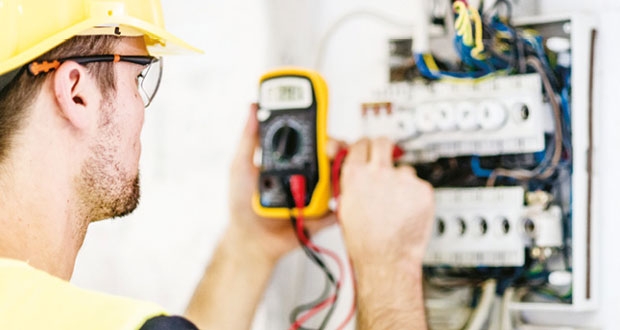 Tracy Burtwell, Managing Director of phs Compliance, explains how to stay on the right side of the law when it comes to testing your electrical equipment
Tracy Burtwell, Managing Director of phs Compliance, explains how to stay on the right side of the law when it comes to testing your electrical equipment
There have been changes in electrical safety laws in England, Scotland and Wales that may come as a surprise to some commercial and private landlords, leaving them open to fines and legal action if they can’t demonstrate compliance.
In recent years, legislation has not specifically identified a mandatory timeframe for carrying out electrical testing on electrical installations and equipment, instead stating that duty-holders must ensure electrical systems are regularly maintained and safe to use, leaving it to them to decide the most appropriate frequency for their tests.
By law, all domestic and commercial landlords must now have an Electrical Installation Condition Report (EICR) completed by a qualified person every five years to ensure the safety of their property for tenants. Failure to comply could cost lives and a sizeable fine.
WHAT IS AN EICR?
An EICR is produced following an assessment of an electrical installation in a building. An electrical installation includes all fixed electrical equipment that is supplied through an electricity meter. It comprises cables, accessories (like sockets, switches and light fittings), fuse boxes, circuit breakers and residual current devices (RCDs).
During the electrical assessment (sometimes called a fixed wire test), a qualified electrician tests and inspects the electrical installation, checking all the components for wear and tear, faulty wiring and anything that could pose a potential risk, like an electric shock or dangerously high temperatures.
The results of the test are then be broken down into categories and recorded in an EICR. The results will show either a satisfactory or an unsatisfactory outcome and will include any recommendations for improvement or immediate remedial actions needed.
WHAT TO DO IF THE EICR REPORT IS ‘UNSATISFACTORY’
Any electrical defects identified must be made safe by law. Any areas of the installation needing repairs will have to be retested once fixed, and achieve a satisfactory result, before they can receive an EIC certificate, deeming them safe to use.
WHAT IS AN EIC CERTIFICATE?
If an electrical installation achieves a satisfactory EICR report, the testing engineer will present the duty holder with an Electrical Installation Certificate (EIC), proving that it has been tested and deemed safe to use in accordance with British Standard BS 7671.
The EIC certificate and EICR report should be kept together in a safe place. These can be presented to demonstrate compliance – for example, to insurers or landlords. EIC certificates are also known as ‘Minor Electrical Installation Works Certificates’ (MEIWC).
DO I HAVE TO WAIT FIVE YEARS TO GET A NEW EICR?
No. The law states that you must get a new EICR at least every five years but you may wish to carry out electrical assessments more frequently to ensure the safety of those using your building and your compliance with basic health and safety laws.
A qualified electrical engineer can advise how frequently they think tests should be carried out based on the building type, its use, potential risks and the overall condition of the installation.
As a guide, most offices, retail spaces, schools or care homes require less frequent testing – usually once every five years.
However, a higher risk environment, like a swimming pool (exposed to high levels of moisture) or an industrial unit (with high dust levels), would require more frequent testing to ensure safety- usually every year.
Many landlords prefer to get a new EICR each time a new tenancy begins, in addition to the mandatory five-year EICR, to ensure compliance and safety.
IS FIXED WIRE TESTING THE SAME AS PAT TESTING?
No. Portable Appliance Testing – also known as PAT testing – is the examination of portable electrical equipment and appliances, such as laptops, lamps, kettles and drills.
HOW DO I PREPARE FOR AN ELECTRICAL INSPECTION?
It is important for the inspectors to see your installation as it is usually set up and used, so no changes should be made before the test.
However, there are things you can do to help make the testing process go quickly and smoothly.
For example:
- Ensure the entire building is accessible with no parts blocked off or difficult to reach
- Ensure access to main electrical rooms and the gas and water supplies
- Remove any objects or possessions that may be placed around the building and that could get in the inspector’s way when looking for electrical accessories, or items of electrical equipment
- If you’re on a prepaid meter, ensure it is loaded with enough credit for the tests to be carried out.
DO I HAVE TO USE A PROFESSIONAL?
Yes, the law states that an EICR must be carried out by a qualified person. This ensures safety and compliance and also the minimum amount of disruption to a business.
phs Compliance is the UK’s largest and most experienced provider of EICR inspections, certifications and electrical safety testing, carrying the highest regulatory and industry accreditation and a nationwide team of fully qualified and experienced engineers.
In association with www.phscompliance.co.uk






